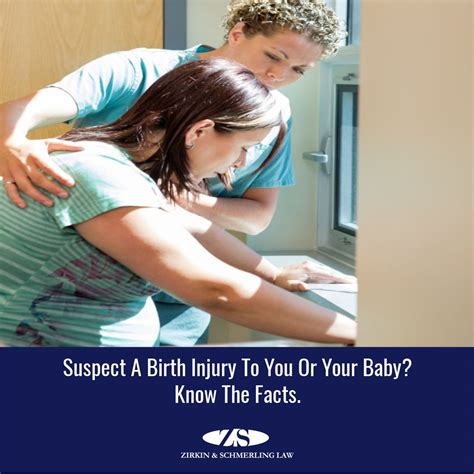What To Do If You Suspect Your Child's Birth Injury Was Caused By Medical Negligence

Having a child is one of the most joyous moments in a parent’s life. However, when a birth injury occurs, it can be devastating and leave parents feeling overwhelmed and uncertain about what to do next. If you suspect that your child’s birth injury was caused by medical negligence, it is important to take certain steps to protect your child’s rights and seek justice. Here are some actions you can take:
1. Gather Medical Records and Documentation
The first step in pursuing a birth injury claim is to gather all relevant medical records and documentation. This includes prenatal records, labor and delivery records, and any postnatal records. These records will provide important evidence to support your claim and help determine if medical negligence played a role in your child’s injury.
2. Consult with a Birth Injury Attorney
It is crucial to consult with an experienced birth injury attorney who specializes in medical malpractice cases. They will be able to evaluate your case, review your medical records, and advise you on the best course of action. A skilled attorney will also be able to navigate the complex legal process and fight for your child’s rights.
3. Obtain Expert Medical Opinions
To strengthen your case, it is important to obtain expert medical opinions from qualified healthcare professionals. These experts will assess your child’s medical records and provide their professional opinion on whether medical negligence occurred. Their testimony can be instrumental in proving negligence and establishing liability.
4. Document Your Child’s Condition and Expenses
Keep detailed records of your child’s condition, including any ongoing medical treatments, therapies, and expenses. This documentation will help calculate the financial damages you may be entitled to, including medical bills, future medical expenses, and any necessary accommodations for your child’s disability.
5. File a Complaint with the Relevant Medical Board
If you suspect medical negligence, it is important to file a complaint with the relevant medical board or licensing authority. This will initiate an investigation into the healthcare provider’s actions and potentially lead to disciplinary measures. Filing a complaint can also help protect other families from experiencing similar harm.
6. Consider Alternative Dispute Resolution
Before filing a lawsuit, you may want to consider alternative dispute resolution methods, such as mediation or arbitration. These processes provide a less adversarial approach to resolving disputes and can often lead to a quicker resolution. However, it is important to consult with your attorney to determine the best approach for your specific case.
7. File a Birth Injury Lawsuit
If negotiations and alternative dispute resolution methods are unsuccessful, filing a birth injury lawsuit may be necessary to seek compensation for your child’s injuries. Your attorney will guide you through the legal process, gather additional evidence, and represent your interests in court. Remember, there are specific time limits for filing a lawsuit, so it is important to act promptly.
FAQs:
1. How long do I have to file a birth injury lawsuit?
The time limit, or statute of limitations, for filing a birth injury lawsuit varies by state. It is important to consult with an attorney as soon as possible to ensure you meet the deadline.
2. What damages can I recover in a birth injury lawsuit?
In a birth injury lawsuit, you may be able to recover damages for medical expenses, future medical care, pain and suffering, emotional distress, and loss of earning capacity.
3. How do I know if medical negligence caused my child’s birth injury?
Determining if medical negligence caused a birth injury can be complex. It requires a thorough review of medical records and expert opinions. Consulting with a birth injury attorney can help you understand if you have a valid claim.
4. Can I afford to hire a birth injury attorney?
Many birth injury attorneys work on a contingency fee basis, which means they only get paid if they win your case. This allows families to pursue justice for their child’s birth injury without upfront legal fees.
5. What if the healthcare provider denies wrongdoing?
If the healthcare provider denies wrongdoing, your attorney will gather evidence and build a strong case to prove negligence. This may include expert testimony, medical records, and other supporting documentation.